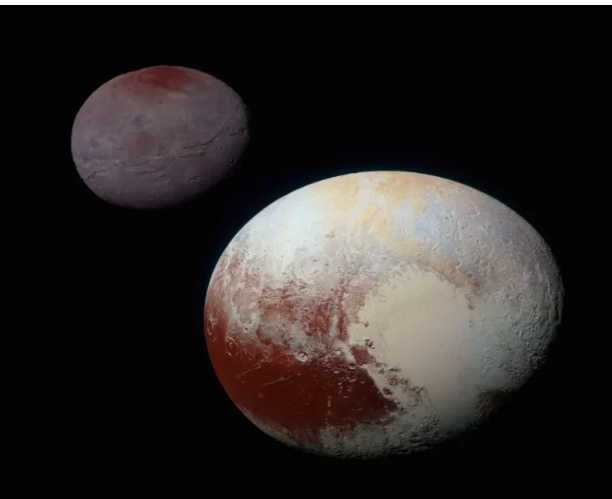IAU Definition of Planet and Why Pluto is Not a Planet Anymore
The International Astronomical Union (IAU) was created in 1919 when the necessity to put some categorization into space studies became obvious. From then, the Union is solely responsible for defining whatever is up there. The (weird for many) move to recall Pluto’s planetary status according to the IAU definition of a planet is on them.
In August 2006, it was reconsidered to be a dwarf planet which surprisingly offended many people. But why is Pluto not a planet in the IAU definition? To understand this, we first need to revise the definition itself and see what makes a planet a planet.
What is the official IAU classified planet?
According to IAU, a celestial body should meet three criteria to be named a planet. Let’s go through and see if Pluto checks the boxes.
The first one is the body should circle the sun in its orbit. Pluto certainly does that.
The second is the body should have enough mass to achieve a nearly round shape with its own gravitation. Pluto checks the box here too.
The third requirement of the IAU definition of a planet is “clear neighbourhood,” which means it should not have other equally sized or bigger bodies in its orbit. To end here, Pluto sort of fails.
The thing is, the combined mass of other objects in its neighbourhood is 0.07 bigger than the mass of Pluto and as such it can’t be considered the gravitational dominant in its orbit.
Is it so small other celestial bodies that are not its satellites can compete for the orbit? Pluto’s size is about 1,477 miles in diameter, which is 1/5th of the Earth’width. So, apparently, it really is too small.
What is Pluto now?
Since 2006, we should name Pluto a dwarf planet. The IAU definition of a dwarf planet states that it is all the planet is, minus orbital dominance. Check space news online magazine Orbital Today to learn more on the subject.
Some Critical Points of a Controversial Decision
The interesting aspect of the whole ordeal was the decision somehow didn’t bode well with many people. Angry space enthusiasts wined and swore on the internet about the sad fate of Pluto so passionate as though their old friend was offended. The root of the problem may not lay in Pluto’s capability to ignite strong attraction in people, but in the process of making the decision.
The questions are many. Firstly, what is the new definition of a planet according to the IAU can improve? What was the need to reassess an old definition and shutter our familiar concept of the solar system? Is the new definition good?
The answer to the last question is — hardly. What would we call a celestial body that circles another star when our definition only mentions the Sun? Why was Pluto downgraded based on the combined mass of its neighbours? Too many unclear points here. In addition, some claim the vote is not legit as only a few people attended the event.
Luckily, Pluto is still there, planet or not, circling the orbit peacefully, far away from all the drama.
Final Note
Not only do people love to categorize things, but the constant revising and reassessment of what we know seems really important. We may not be happy with an outcome for a while, but with new discoveries comes new knowledge we should accurately build into our system to proceed with the exploration. The case of Pluto is remarkable though, as it showed an amusing connection people a capable of making even with an inanimate object they haven’t seen once.
The possible outcome is there as well. One of the initial goals for the creation of IAU was to spread knowledge about space, to popularize the topic and to educate more people on the subject. The change of Pluto’s status out of the blue certainly managed to achieve this.
